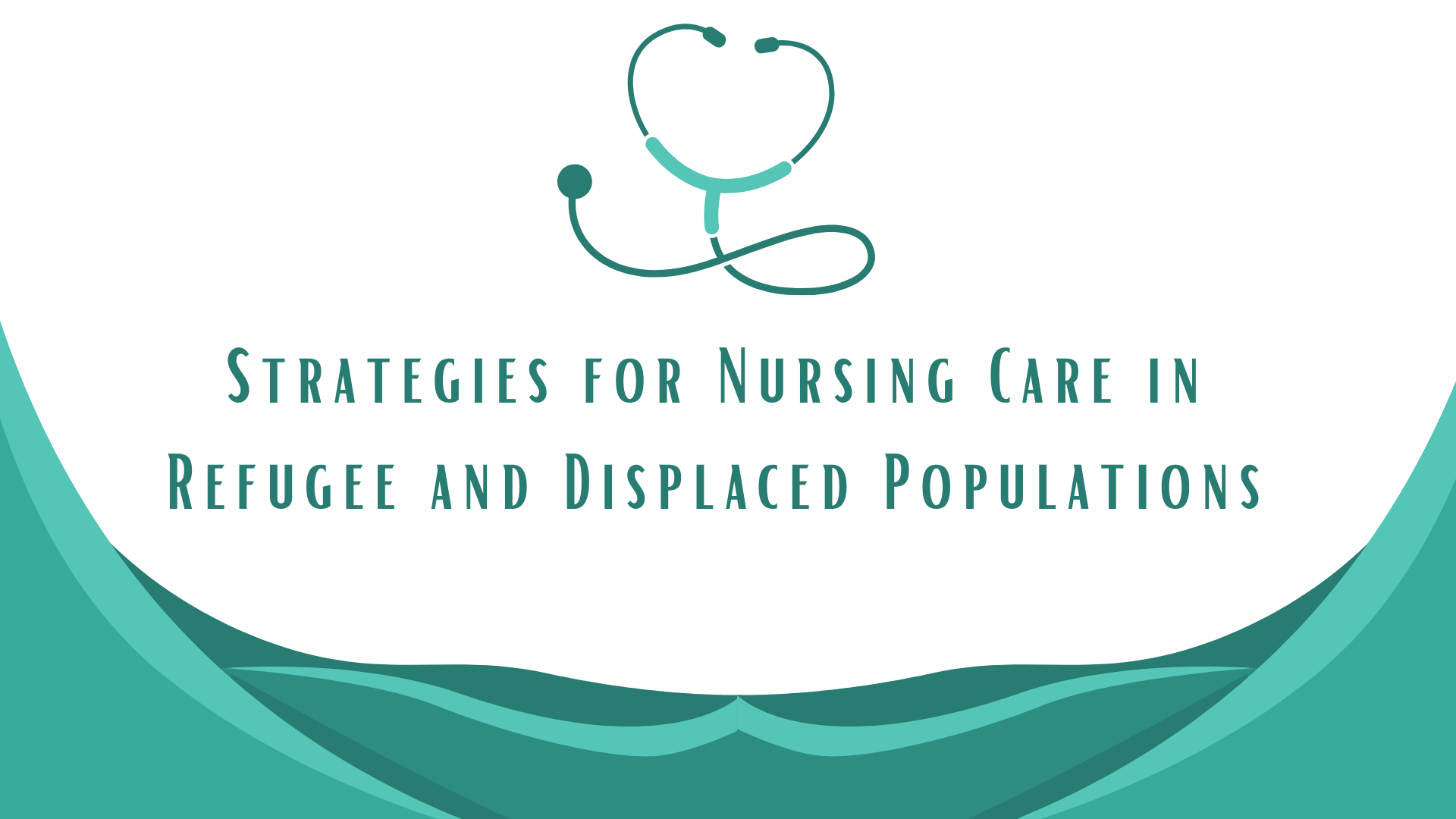In recent years, the world has witnessed a significant increase in the number of refugees and displaced populations due to conflicts, natural disasters, and other crises. According to the United Nations High Commissioner for Refugees (UNHCR), the number of forcibly displaced people worldwide exceeded 82 million by the end of 2020, highlighting the urgent need for effective healthcare strategies tailored to their unique needs.
As frontline healthcare providers, nurses play a crucial role in addressing the health challenges faced by refugees and displaced persons. This comprehensive guide explores the strategies for nursing care in refugee and displaced populations, offering insights into best practices, challenges, and innovative approaches to delivering healthcare in such contexts.
Understanding the Unique Healthcare Needs of Refugees and Displaced Populations
Before delving into specific strategies, it’s essential to understand the unique healthcare needs of refugees and displaced populations. These individuals often face numerous health challenges, including:
- Physical Health Issues: Refugees and displaced persons may suffer from malnutrition, infectious diseases, injuries, and chronic conditions exacerbated by poor living conditions and limited access to healthcare services.
- Mental Health Concerns: The experience of displacement, trauma, and loss can lead to high levels of psychological distress, including depression, anxiety, and post-traumatic stress disorder (PTSD).
- Social Determinants of Health: Factors such as language barriers, cultural differences, socioeconomic status, and lack of social support networks can significantly impact the health outcomes of refugees and displaced populations.
Table: Common Health Challenges in Refugee and Displaced Populations
| Health Challenge | Description |
|---|---|
| Malnutrition | Inadequate intake of essential nutrients leading to poor physical health. |
| Infectious Diseases | High prevalence of communicable diseases due to crowded living conditions. |
| Mental Health Disorders | Psychological distress, including depression, anxiety, and PTSD. |
| Chronic Health Conditions | Long-term illnesses such as diabetes, hypertension, and asthma. |
| Maternal and Child Health | Challenges related to pregnancy, childbirth, and child health. |
| Access to Healthcare | Limited access to healthcare services due to financial or structural barriers. |
Strategies for Nursing Care
Effective nursing care in refugee and displaced populations requires a multifaceted approach that addresses their diverse healthcare needs while considering the unique challenges they face. Below are key strategies for providing high-quality nursing care in such contexts:
1. Culturally Competent Care
Cultural competence is essential for providing effective nursing care to refugees and displaced persons. Nurses should strive to understand and respect the cultural beliefs, values, and practices of the populations they serve. Key considerations include:
- Language Access: Utilize professional interpreters or cultural mediators to bridge language barriers and ensure clear communication with patients.
- Respect for Cultural Practices: Respect cultural traditions related to health and healing while providing evidence-based care.
- Cultural Sensitivity: Be sensitive to cultural differences in attitudes toward illness, treatment, and healthcare providers.
2. Trauma-Informed Care
Many refugees and displaced persons have experienced traumatic events, including violence, persecution, and loss. Trauma-informed care involves recognizing the impact of trauma on individuals’ health and well-being and providing care in a sensitive and supportive manner. Key principles include:
- Safety and Trust: Create a safe and trusting environment where patients feel empowered to share their experiences.
- Empowerment and Collaboration: Involve patients in decision-making processes and empower them to actively participate in their care.
- Avoiding Re-traumatization: Minimize triggers and re-traumatization by being mindful of language, tone, and environment.
3. Addressing Social Determinants of Health
Social determinants of health, such as poverty, housing instability, and lack of access to education, significantly impact the health outcomes of refugees and displaced populations. Nurses can address these factors by:
- Advocacy: Advocate for policies and programs that address social determinants of health and promote health equity.
- Resource Navigation: Assist patients in accessing social services, housing assistance, education, and employment opportunities.
- Community Partnerships: Collaborate with community organizations, government agencies, and non-profit groups to address the social needs of refugees and displaced persons.
4. Collaborative Care Models
Collaborative care models involve interdisciplinary teamwork and coordination to provide comprehensive healthcare services to refugees and displaced populations. Key components include:
- Interprofessional Collaboration: Work collaboratively with physicians, social workers, psychologists, and other healthcare professionals to address the complex needs of patients.
- Care Coordination: Ensure seamless coordination of care across different healthcare settings, including primary care clinics, hospitals, and community-based organizations.
- Team-Based Approaches: Embrace team-based approaches that leverage the unique expertise of each healthcare provider to deliver holistic care.
5. Health Promotion and Education
Health promotion and education are essential components of nursing care in refugee and displaced populations. Nurses can empower patients to take control of their health by providing:
- Health Literacy: Offer culturally appropriate health education materials in multiple languages to improve health literacy and promote self-care practices.
- Preventive Services: Provide vaccinations, screenings, and preventive health services to reduce the burden of infectious diseases and chronic conditions.
- Community Outreach: Engage in community outreach activities to raise awareness about health issues and promote healthy behaviors within refugee and displaced communities.
Conclusion
Nursing care in refugee and displaced populations requires a comprehensive, patient-centered approach that addresses their unique healthcare needs while considering the social, cultural, and environmental factors that impact their well-being. By embracing strategies such as cultural competence, trauma-informed care, and collaborative practice models, nurses can play a vital role in improving the health outcomes and quality of life for refugees and displaced persons worldwide.

